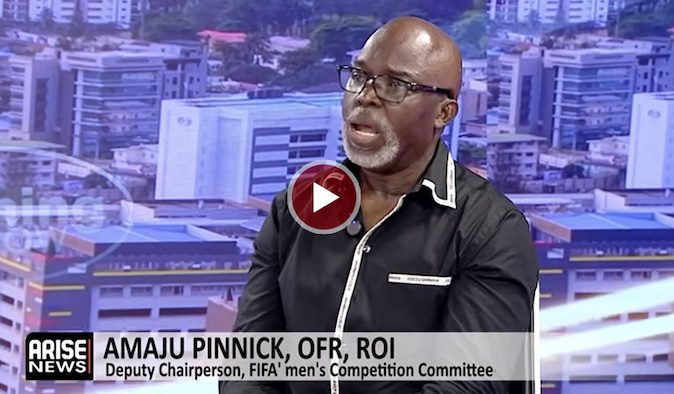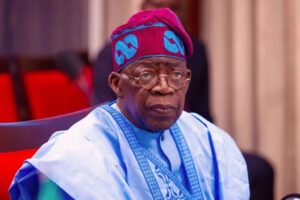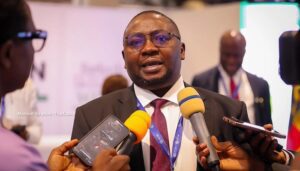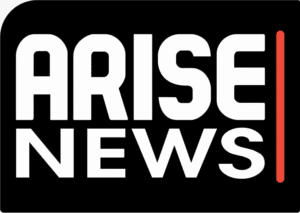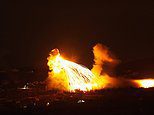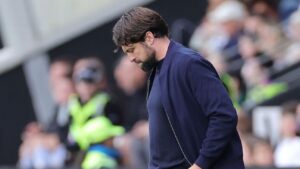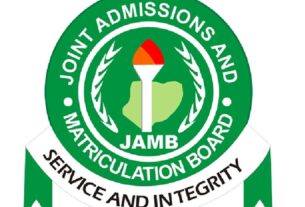
Presidential Advisor to the CAF President, Amaju Pinnick, has addressed recent criticisms surrounding the Kebbi Stadium project, insisting that the construction was executed transparently, according to global standards, and in full compliance with Nigeria’s Public Procurement Act.
In an interview with ARISE NEWS on Thursday, the former president of the Nigeria Football Federation, Pinnick, explained that the processes, procedures, and protocols used to award the contract adhered to both international best practices and local laws.
“Everything went through the books. Tenders were made, you saw the tenders. People bidded for the job, companies bidded for the job. The company that won the job to do the one in Kebbi, it’s not new. He’s a construction company. The Abeokuta Stadium they used for the National Sports Festival, he built it in 1999. He revamped it for the National Sports Festival. He built, he was part of the building of this Testimonial Stadium. He’s got a couple of things. He is a guru in sports infrastructure. And he won the bid.”
He clarified the project’s financial framework and refuted claims of mismanagement. “When they say 1.2 million dollars, 1.2 million dollars at that point was 400 million Naira.
“After going through the processes, he did everything he had to do. So people should understand this. What I keep emphasising is that even in the face of COVID, there was no variation. Everything that we do, 400 million Naira at that point. I mean, you bring in, you produce a synthetic turf. You fly it in. You take it to Kebbi State. You do stabilisation. You do the foundation. You do the ground drainage. Then, come on, 400 million Naira for a project at that point. So if you look at it, he did it. It’s in phases.”
Pinnick highlighted the stadium’s active use and contribution to grassroots football in Kebbi. “There was no single protest. Let me tell you, the Kebbi Stadium now is home to KB United. It’s home to Zamfara. Not even the Kebbi State. And they’ve done a lot of tournaments on that pitch. What if I put that picture on their website? It’s saying that deep in the hinterlands of Nigeria, football is being played, and that was the dream of Borodu.”
Pinnick also addressed concerns about FIFA funding for Nigerian football infrastructure, explaining the NFF’s role as a conduit for global funds and adherence to contractual obligations.
“There’s what’s called an agreement between the MEA, which is the member association, and FIFA. Once you agree, this is what you want to do. People look at it in line with their own processes. In line with the statutes. If it’s in line with the processes, in terms of all programmes, FIFA accepts it. They sign the agreement and they implement. NFF is just like a conduit. FIFA pays and builds on the contract. All they give us is, once you start, I think they pay about 350,000. It’s a massive amount of payment. Everything properly done.”
Pinnick contrasted Nigeria’s infrastructure projects with smaller footballing nations in Africa, arguing that accusations against the Kebbi Stadium were based on misinformation.
“Before we go there, Nigeria was not the only beneficiary of the FIFA forward programmes. You have Mauritania, Cabo Verde, Zambia… And when you look at what they did with the funds, it’s a far cry from what Nigeria did with the funds. And this is the issue. It’s not about anybody trying to demarket Nigeria or trying to cast a spell on the nation. It’s because we’re in the digital age. People have Googled. They’ve seen what they have in Mauritania. They’ve seen what they have in Cabo Verde, Zambia, all of which are much smaller footballing nations than Nigeria. So why is there the variation between what other countries got and what we got? Let me tell you, I can also educate you on it.”
He further emphasised that the NFF’s commitment to milestones and contractual obligations ensured project transparency and efficiency. “Everything that was done here, I’m telling you 100%, was done according to the books. At this point, it’s about 1.7 billion Naira. Look at the pitch. Do you know what’s on the base of that pitch? Do you know what’s on the base? The engineering. The construction on the base of that pitch, so it doesn’t get flooded.”
Pinnick condemned the spread of misinformation that, in his view, damaged Nigeria’s global image. “People should not just open their vocal cavity and start pointing out things against this country. We love this country. We’ve been opportune to go around this world. There is nowhere like home. It’s very critical. We are going through a lot right now, globally, in terms of image. We do not need this.”
On the phased execution strategy, he explained how each milestone was carefully planned and funded, “Everything that we do follows milestones and contracts. You bring in the equipment, stabilise, do the foundations, the drainage. You produce a synthetic turf, fly it in, install it, and make sure it lasts. That is how we work.”
Concluding his explanation, Pinnick reiterated the importance of protecting Nigeria’s football institutions and encouraging objectivity. “It’s not just coming here to defend, we must protect institutions in Nigeria, where we need to protect them, who are exposed there, where we need to expose them, where we project the country, where we need to project the country. We are very serious about it. People need to be objective. We have nothing to hide.”
Erizia Rubyjeana
Follow us on:

